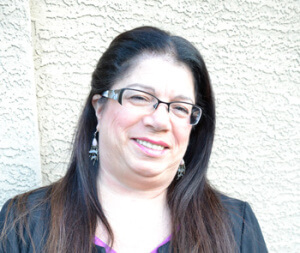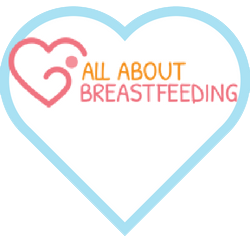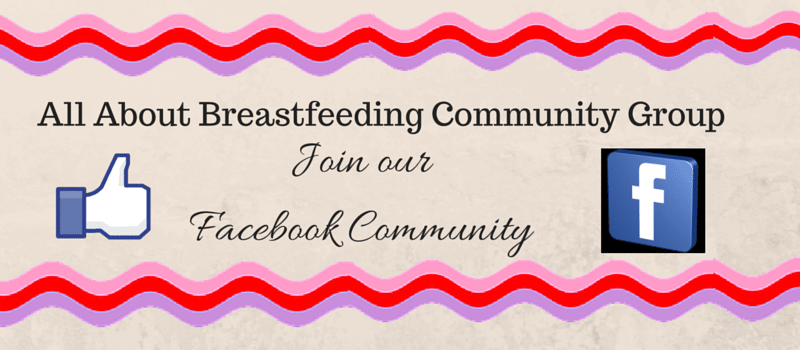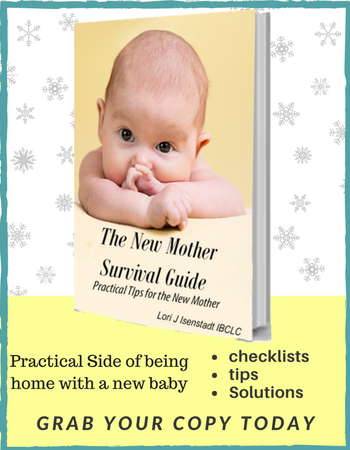Just remember that a baby between 6 months and a year still needs you very much. They need the connection, the nutrients, and the immunities and all of the things that your body provides for them. Just remember that It is a tender age and it is this thing that they are really good at. They are really attached to and whatever our timelines are, they don’t understand them. They are creatures of pure instinct at this point so we may under these timelines but they don’t. I think it is important to remember for us to be just as gentle and loving as possible and to be physically there for our children as possible.
Episode 383
Her bio:
Winema Wilson Lanoue has been providing extensive, trained nursing (breast/chest feeding) support for families since 2002. She promotes loving parenting through this work and through her writing. She is a mother to three children, ages 8, 15 and 19. Winema has written, A Loving Weaning How to Move Forward Together.
Her background:
 Winema grew up in a family where she describes her parents as being “big hippies” in the real sense of the word. She spent the early part of her life living in communes. Her family consisted of her mother and adopted father and lots of siblings. She was surrounded by many other people, some strangers and others friends. Her mother and adopted father soon moved out of communes and moved to a town and the family settled in. She is still close to many of the people from her early life. She describes her family as a very loving family, with pretty solid people who are able to do the things they want to in the world.
Winema grew up in a family where she describes her parents as being “big hippies” in the real sense of the word. She spent the early part of her life living in communes. Her family consisted of her mother and adopted father and lots of siblings. She was surrounded by many other people, some strangers and others friends. Her mother and adopted father soon moved out of communes and moved to a town and the family settled in. She is still close to many of the people from her early life. She describes her family as a very loving family, with pretty solid people who are able to do the things they want to in the world.
Her younger years:
Winema says that she is a person who has a new dream every day. She was constantly thinking of new things that she wanted to do. Helping people and creating things have been a running theme in her life.
Was she breastfed:
Yes, her mother breastfed all her children. She was not breastfed as long as she might have because of pressure from other family members. Winema remembers seeing her younger siblings breastfeeding and has fond memories of this.
Her breastfeeding experience:
She breastfed all of her 3 children.
Her first born son breastfed for 3 years. Breastfeeding him was relatively easy in the beginning. She just assumed that since her mother breastfed and seemed fine, that she would be also.
Second son – had a gallbladder attack after he was born. She was having difficulties sleeping and experienced some negative feelings that she had not experienced with her first. This was difficult for her as she assumed it was going to be just as easy or easier than her first baby would be. This experience helped her realize that every baby is different and every breastfeeding experience is different and that it does not always go so easy for everyone.
Her weaning experiences:
She was willing to nurse through a pregnancy and consider tandem nursing. She could not imagine her older son not wanting to continue. He was so devoted to breastfeeding and she was not ready to stop. However, in her 6th month of pregnancy, her 3 year old son just stopped. Her second son weaned himself when he was a little older than 3. He did not nurse for several days and she figured he was done. Then he asked to nurse again, she said of course, but he really had no interest and he was finally done. Her third baby, her daughter weaned even later. Winema did not mind her nursing for a longer time and just allowed it to happen naturally.
Her husband was supportive and was comfortable with weaning just happening. She does live in an area where breastfeeding rates are not high… over a year. So she found herself feeling a bit uncomfortable and sometimes people said things, but she was very comfortable in her own skin, so to speak, so she was fine. Having said that, she does find that some parents feel pressured to wean and she does feel sad about this.
What are some things you find in common with weaning families?
Parents have one idea on how weaning is going to work and then see that it happens quite differently then they had planned. Some parents will say: I will be one at one year and tell me what to do. Others will say: I have no idea how this will work, tell me how this works. She often finds that they all wind up in the same place regarding how to and when to wean as far as their thinking. They realize it is not an event, but that it is a process.
FAQ’s:
If you are letting your baby guide you as to when it’s time to wean, how will you know when it is time?
Experts recommend 1 year as a minimum. There is no maximum. If it’s a process and not an event then you are not looking for a signal from your child telling you that they are done. We on’t even know what that looks like.
Process: look for times during your day when they don’t seem to be as interested in breastfeeding. Is there any times when they don’t seem to be that interested. What happens if they would rather be doing something else. That might be a time when you might begin to let go of that feeding. Rather than a hard stop and start.
Some additional signs:
Quicker nursings. Father apart. Missing Days. you start seeing the subtle signs and follow their lead. Well, I don’t want to nurse at this time of the day anymore. This can be one lovingly as you begin to recognize nursing sessions that they are not so interested and not 100% child led Means that you are taking into account their emotions developmental stage and personality. You are not doing things against their will.
It means that your timeline is based on their timeline dictated by you and yours, not based on some experts timeline. You don’t need to You don’t have to sit around waiting and you can never, evercan try and see if you can help it along, just not doing it in a way that is not consistent with who they are and their development.
Can you make your baby keep breastfeeding?
We cannot make our babies breastfeed. Anyone who has been around babies and children, you know that you cannot make your baby keep breastfeeding.
Next question:
Andrea asks:
I don’t think I’m producing much milk now. My girl is now only breastfeeding to sleep (sometimes she doesnt) and sometimes if she wakes up at night but only for a few minutes.
I’m trying to wait on her to comprehend that “there’s no more milk” but I don’t know if she’s really realising that?
Sometimes I would like to totally stop because I want to get pregnant again… But I really do not have the heart to do so… I mean, it doesn’t bother me to nurse her… I Just don’t offer it, and she doesn’t ask for it, only at night.
Do you think that nursing only those few times at night can prevent me from getting pregnant?
Is it ok for me Just to keep on explaining her that her ‘totis’ (boobies) doens’t have much milk anymore, that they are empty and if she insists Just let her ‘try’? Or am I confusing her?
She doesn’t necessarily need to think that she doesn’t have milk and I guarantee her child knows. It may not be about hunger or the need for milk because as we know nursing toddlers come to the breast for different reasons other than milk.
Can nursing at night prevent her from getting pregnant?
Answer:
It is a hard question to answer because every women is different, with different cycles and frequency of their baby breastfeeding. However, unless there is a specific health issue, as long as a woman is having regular cycles, she should not need to stop night nursing in order to conceive. If she is finding it difficult to conceive, she might consider weaning from the early morning feedings because this is when the hormones are the highest. Weaning from these feedings will help her return to fertility faster. In general, most mothers are able to get pregnant again, if they are having regular cycles.
How can you be consistent with weaning? If you have not decided on a specific date to stop, it might not be helpful to you to use a lot of language that sounds like you are trying to. If you are okay with your baby breastfeeding at night, but wondering when it will end, you can try different strategies.
Rather than Asking: are you sure you want to nurse? This is empty, are your sure? ( this is confusing and inconsistent). It is like you are saying: No, don’t do it, but then you are letting her. You might try different strategies to shorten the sessions. Let’s sing a song while you nurse and when you are done nursing, we will go back to sleep.
The time to purposefully explain about weaning is when you are read to stop or you feel like your child is truly ready to wean. Otherwise, trust that your child knows whether there is milk there and they are just choosing to nurse even though there isn’t milk or they are getting milk.
Episode 384
Her bio:
Winema Wilson Lanoue has been providing extensive, trained nursing (breast/chest feeding) support for families since 2002. She promotes loving parenting through this work and through her writing. She is a mother to three children, ages 8, 15 and 19. Winema has written, A Loving Weaning How to Move Forward Together.
Her background:
Winema grew up in a family where she describes her parents as being “big hippies” in the real sense of the word. She spent the early part of her life living in communes. Her family consisted of her mother and adopted father and lots of siblings. She was surrounded by many other people, some strangers and others friends. Her mother and adopted father soon moved out of communes and moved to a town and the family settled in. She is still close to many of the people from her early life. She describes her family as a very loving family, with pretty solid people who are able to do the things they want to in the world.
More questions answered by Winema:
Jessica asked: Her OB-Gyn said that she should stop nursing her baby by the time she was 20 weeks pregnant with her second to give her body time to prepare for the next baby. Is this true?
Winema answers:
She states that she does get asked this question a lot in different forms. The generally accepted view on this subject is that unless you are known to have extremely precarious pregnancies or this one is extremely precarious and/or you have been told that you should avoid sex during this pregnancy, otherwise you should be fine nursing during pregnancy. It shouldn’t cause any issues and regardless of nursing an older child, your body will prepare for birth and for nursing a newborn simply because of the hormones during pregnancy and by the process your body is going through.
Now there might be times when moms find it uncomfortable and don’t want to continue and weaning during this time period is okay.
Sarah asked: If you decide to start weaning and your body follows the decrease in demand for milk production, will your body also follow an increase in demand if you decide to stop weaning and go back to nursing?
Winema answers:
It really just depends on what your body does and what your child does as well. Depending on the age of your child and the frequency of nursing it may be easy for your body to bounce back sometimes moms go away for work for a week and they stop nursing and your child just starts nursing again when you come back and your body increase the supply to meet the demand. If not, you will need to implement a plan on helping to increase your supply.
Next question:
In general what breast changes can first time moms have when they start to wean. For example: I imagine the actual breast size will eventually decease but how long does it take for the changes to occur.
Winema answers: This is so dependent on who you are and how your body responds to the weaning process. It also depends on your breasts and your hormones. There really is no specific answer to this question.
Christina asks:
Are there any typical emotional changes when weaning. Do hormonal changes contribute to added emotional, mental and physical changes. Is there anything typical to be prepared for as compared to the postpartum period.
Winema answers:
I would say that this is one good reason why we don’t want to have an abrupt weaning, at any age. unless we have to. Our bodies and hormones do need time for a slow change so we don’t have a strong reaction to anything. I have met women who feel they experience something akin to postpartum depression for the first time when they weaned pretty quickly. Oxytocin is one of the hormones at play here. One way to help with this is to remember both you and your child need each other physically even if you are not nursing. Some mothers distance themselves when they are not nursing. This can be really hard on your body and our baby. You can increase your oxytocin by being close to your child and cuddling. It can also make you feel as if you are still connected and this can be good for both of you.
This is one of the first separations that you and your child will go through. I try to tell parents be prepared for the fact that weaning may be hard for you in several ways that might not expect. There is some anectdotal information out there that some moms have feeling of postpartum depression like symptoms after weaning that it would be a good idea for this to be a discussion amongst counselors and doctors just to support moms during this time. There are also moms who have gone through this process who don’t report having any feelings.
Next question:
How do I know the difference between a nursing strike and my baby starting to wean?
Winema answers:
Usually a baby under a certain age, typically does not mean to wean. Usually rule of thumb is that if a baby is suddenly stopping nursing and they are under a year of age, it’s probably a nursing strike. There are things you can do to try and get baby back to breast.
When this happens, I encourage moms to relax. Some moms get concerned about their child s nutrition but remember if they have an older child who is eating solid foods, to relax and not be so concerned about it. Be there for them.
Sometimes older babies are having a nursing strike and moms assume they are weaning. If they have not nursed in a few days, but then want to nurse, go ahead and let them. If this was just a nursing strike, to not allow them to nurse would be an abrupt weaning and something that your baby was really not yet ready for.
Sarah asks: If you plan to stop nursing and pumping at one year, when do you stop the nursing and pumping sessions so that it is easiest for both mom and baby. Her daughter seems to do fine with the bottle, but she worries she will go crazy when weaning from the breast.
Winema answers:
Winema first likes to find out how they came upon the timeline of one year to be done with breastfeeding. She sometimes finds that it is the moms decision. Other times she finds that the mom was told she should wean by the child’s first birthday. She may not necessarily been ready herself nor is her baby. She just thinks she is suppose to wean because that is what she has been told. Winema likes to share with them that their milk is still good for their baby and it is filled with lots of nutrients that toddlers can benefit from. She also likes to remind parents about all the other reasons babies come to the breast, in addition to the nutrients they receive.
Winema likes for parents to know that it is much easier to not have such a hard date, but rather think of it as a process, because it is a process. They may not be done on exactly their first birthday. You may have started on a certain date with the plan to be done by your babies first birthday , but it may take a bit longer.
Weaning is about shortening sessions, spreading them out or eliminating sessions. Start looking for those times when your baby seems less interested. A child under a year still needs nutrition during the day and at night. You can look for times when they are easily distracted and gradually increase the times in between breastfeedings. Over a year, If you do not want to be nursing during specific times, perhaps they might want other foods.
If you don’t need to wean abruptly, the weaning process is best when done gradually. Take the time to start observing when your child seems to be less interested in nursing. Begin to capitalize on the times when they are easily distracted. Take into consideration your child’s behavior. There is no way to know exactly when you should start and how long it will take.
Don’t offer, don’t refuse is a common quote that she uses. This is the easiest, most kindest way to begin. Just remember that a baby between 6 months and a year needs you very much. They need the connection, the nutrients, and the immunities and all of the things that your body provides for them. It is a tender age and it is this thing that they are really good at.
Last question: Do you have any humorous responses that you have given or have heard about in answer to this question: Is your baby still nursing?
Is he still nursing? Oh probably for another 10 minutes or so.
When is that baby going to wean? If you have given some solid foods, You can say, we are already on our way
Sometimes parents find that this works really well: They just say: I am following doctors recommendations. If you are following the recommendations of the AAP which say the minimum of 1 year and as long as mutually desirable, this helps because very few people will argue that because this is what the AAP recommends.
You might also say: Thanks for asking. We are doing our own thing. We are on our own journey.
Some people respond to you trying to educate them and give them information. Others don’t and it is nice to just say: we have it under control.
Your Online Breastfeeding Class
Learn how to breastfeed – Be comfortable. Be confident.
The learning continues well beyond the average breastfeeding basics class that is 60-90 minutes. In this class, we have over 15 hours of audio lessons, combined with many hours of videos to help support what you are learning. We cover breastfeeding and medication safety, what to do if your baby does not latch on, common breastfeeding challenges, tongue tie, premature babies, building a good supply, returning to work and pumping. Take a look at the list below and follow the link to the class page so you can see more specifics of what is covered. I want to ensure that we got you covered and that you have great support well beyond the newborn days.
- Using your pregnancy time to prepare for breastfeeding
- Tips on how to prepare your home for a newborn
- Specific details about the first 24 hours after birth.
- Exactly what to expect the first two weeks after birth
- What can you do if your baby is not latching on
- Common and not so common breastfeeding challenges
- What you can expect over the next few months
- Returning to work as a breastfeeding/pumping mom
- Pumping and storing your milk
- When to begin pumping and building your freezer stash
- How to make a smooth transition to postpartum life
- Lessons dedicated to partners and breastfeeding knowledge.
- Breastfeeding and the 1 year old
- Breastfeeding the toddler and beyond
- Tandem nursing
- Breastfeeding through a pregnancy
- Medication and mother’s milk
- Weaning
Once you register for the class, you have immediate access to:
- Audio Lessons
- Videos
- Educational handouts
- Helpful checklists
- Our “members only” group
- Weekly group LIVE Q&A sessions
Gain confidence in breastfeeding.
Expert advice from Lori J. Isenstadt, IBCLC who has over 25 years of experience in maternal health and lactation. I will help you navigate the ins and outs of breastfeeding.
Listen anywhere and anytime. Imagine not having to sit in a classroom or stare at a screen. You can learn all about breastfeeding while going for a walk, driving to work or running errands, traveling on a plane, train or bus. Because you can download the audios, learning is easy and convenient. Get ready to learn anytime whenever it’s convenient for you and your partner. You can be cooking dinner together and listening to the class. Perhaps relaxing together in the evening in your comfy clothes. You can learn together. Easy access to all class materials. Your class never expires. You’ll be able to listen and download the materials at your convenience.
You are not alone!
Once you are a student in the breastfeeding class, you have regular access to ongoing support for the whole time you are breastfeeding. You can have your questions answered by Lori J. Isenstadt, IBCLC, in our private group as well as our weekly live Q & A sessions. Just check out the Bonuses below to see how I provide you with ongoing support..
Exclusive Bonus #1
Immediate access to a private group for class students only. I will be answering your questions 5 days a week.
Exclusive Bonus #2
Invitation to join our weekly Q & A session with Lori and other students.
Exclusive Bonus #3
Need additional help? *25% discount off a private consult – for students only.
*If you are in the Phoenix metro area. use this link to schedule your Office or Home lactation consult.
*If you are out of the area, use this link to schedule a Skype call
Do you have a question about the class before you purchase? Send it to – aabreastfeeding@hotmail.com
 Register for the Breastfeeding class
Register for the Breastfeeding class
http://www.aabreastfeeding.com/audioclass
Additional ways to connect with me:
Like us on Facebook HERE:
http://bit.ly/2dNPlsC
Follow us on Twitter HERE:
@breastfeedingaz
http://bit.ly/2BfEIJ2
Follow us on Pinterest HERE:
https://www.pinterest.com/lorijisenstadt
Subscribe on iTunes the All About Breastfeeding show HERE:
https://apple.co/2FJGwsV
Lori J. Isenstadt, IBCLC
 Lori Jill Isenstadt, IBCLC is a huge breastfeeding supporter. She has spent much of her adult life working in the maternal health field. Once she became turned on to birth and became a childbirth educator, there was no stopping her love of working with families during their childbearing years. Lori became a Birth doula and a Postpartum doula and soon became a lactation consultant. She has been helping moms and babies with breastfeeding for over 25 years. Lori founded her private practice, All About Breastfeeding where she meets with moms one on one to help solve their breastfeeding challenges. She is an international speaker, book author and the host of the popular itunes podcast, All About Breastfeeding, the place where the girls hang out. You can reach Lori by email at: [email protected] or contact her via her website: allaboutbreastfeeding.biz/contact
Lori Jill Isenstadt, IBCLC is a huge breastfeeding supporter. She has spent much of her adult life working in the maternal health field. Once she became turned on to birth and became a childbirth educator, there was no stopping her love of working with families during their childbearing years. Lori became a Birth doula and a Postpartum doula and soon became a lactation consultant. She has been helping moms and babies with breastfeeding for over 25 years. Lori founded her private practice, All About Breastfeeding where she meets with moms one on one to help solve their breastfeeding challenges. She is an international speaker, book author and the host of the popular itunes podcast, All About Breastfeeding, the place where the girls hang out. You can reach Lori by email at: [email protected] or contact her via her website: allaboutbreastfeeding.biz/contact

Submit a comment
your email address will not be published








